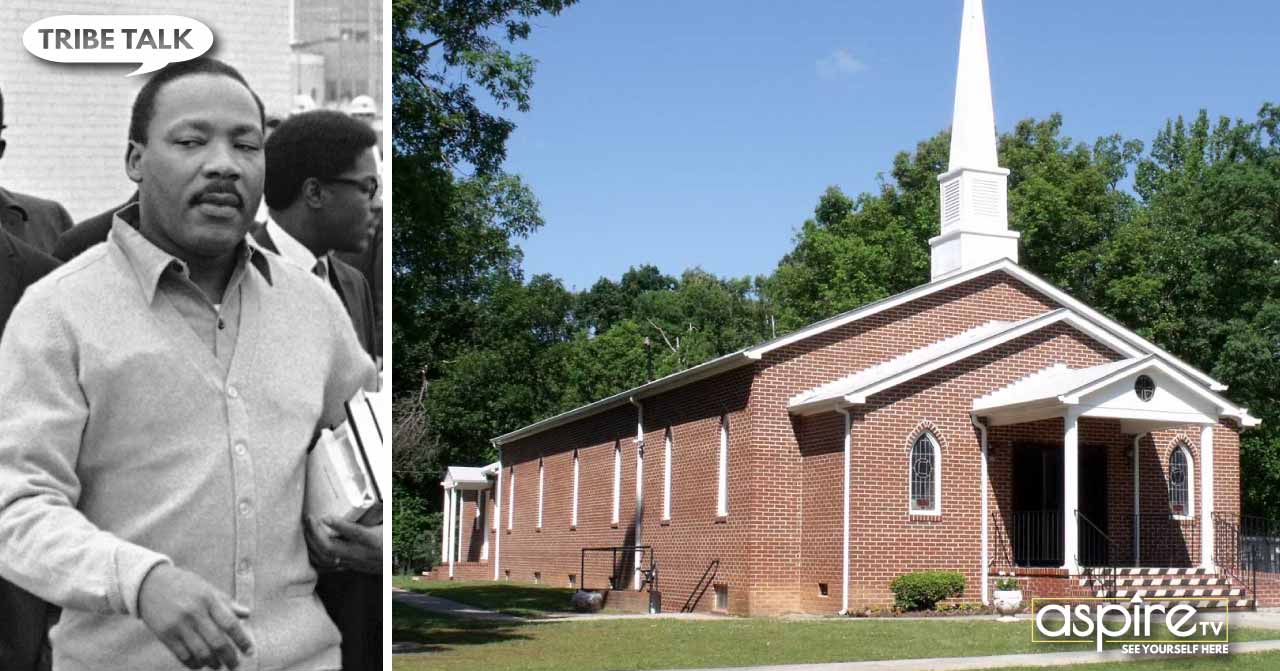

OP ED: How My Grandmother Helped Reveal A Forgotten Chapter Of Black History And Dr. Martin Luther King Jr.’s Legacy In Central Virginia
Black history in America has always been approached as a taboo subject for those who already know the stories of where they come from.
Today, there is a direct attack on teaching Black people about their history and the role they’ve played in building the America that so many people know and love today. They don’t want many to know that there is a deep, rich history in your backyards, and this story is just one example of that.
Since childhood, I have felt a deep connection to Rev. Dr. Martin Luther King Jr. As I grew up, I memorized his speeches, especially I Have a Dream and I’ve Been to the Mountaintop. His life and legacy inspired me to compete in oratorical contests as early as third grade. Yet, I did not discover his ties to my home, Dinwiddie County, Virginia, until I turned 32.
That’s right. King had direct ties to Central Virginia through my paternal grandmother, whom I affectionately call Nana. When she was a little girl, the renowned civil rights leader visited and spoke at her church, Mt. Level Baptist Church thanks to his connection to the religious institution’s former pastor, Rev. Dr. Wyatt Tee Walker, who also happened to serve as King’s campaign coordinator and chief of staff.
With King speaking at her church as a child being a core memory of my nana, she was inspired to conduct further research only to find that her former pastor also played an integral role in ensuring that King’s Letter from Birmingham Jail, written while he was being held in custody for participating in a civil rights protest in Birmingham, Alabama in April of 1963.
King spent about nine days in jail, including time in solitary confinement, before securing release on bond after just over a week, thanks to the Kennedy administration who intervened on his behalf because his wife, Coretta Scott King, had recently given birth.
While incarcerated, King took the initiative to write a letter responding to white ministers who criticized both the march that led to his arrest and the work of civil rights activists like himself.
While in custody, King was not permitted to make phone calls, so he did what he did best: He wrote. According to the University of Alabama News Center, using the margins of the Birmingham News, King wrote his Letter from Birmingham Jail. Recently, my nana discovered that her late pastor, Rev. Walker, organized and edited King’s written thoughts and played an integral role in getting the letter published in May 1963.
This was the same pastor who baptized my nana. She joined Mt. Level Baptist Church at an early age and continues to do so today.
Again, knowing where you come from holds so much power. If my nana had not been curious enough to investigate King’s relationship with her church, she would have never discovered that Rev. Walker directly brought one of King’s most profound and essential works to life.
Because of this, she was inspired to register Mt. Level Baptist Church as a national historical site. The site has been approved, and a marker will be placed on it in the forthcoming months.
This is not only significant but also heartwarming for her. She is a massive part of history herself, having been among the first Black students to integrate Dinwiddie County Public Schools in 1965.
“As a child, witnessing Dr. King’s presence at my church, Mount Level Baptist, was a moment that ignited a spark of hope and purpose within me,” said Sharon Yates, also known as my nana. “His powerful words and unwavering commitment to justice resonated deeply, shaping my understanding of courage and activism. It inspired my journey as part of the movement by my decision to be one of one hundred-plus students who integrated Dinwiddie High School in 1965. That day not only inspired my journey towards social change but also fueled my desire to honor his legacy. It compelled me to apply for a historical marker at my church, ensuring that future generations would remember the profound impact of one man’s vision.”
Today, King’s Letter from Birmingham Jail is more relevant than ever as it addresses timeless issues of activism, justice, and moral responsibility in the face of oppression.
His call for immediate action, critique of the “moderate” moral responsibility to disobey unjust laws, and themes of unity and connectedness, faith, and social justice make this letter read as if it were written today.
The Letter from Birmingham Jail remains a blueprint for resistance, reminding us that the fight for justice requires courage, urgency, and unwavering commitment.
Listen to the full letter below.
Keep it locked to aspireTV for more stories about the culture.








